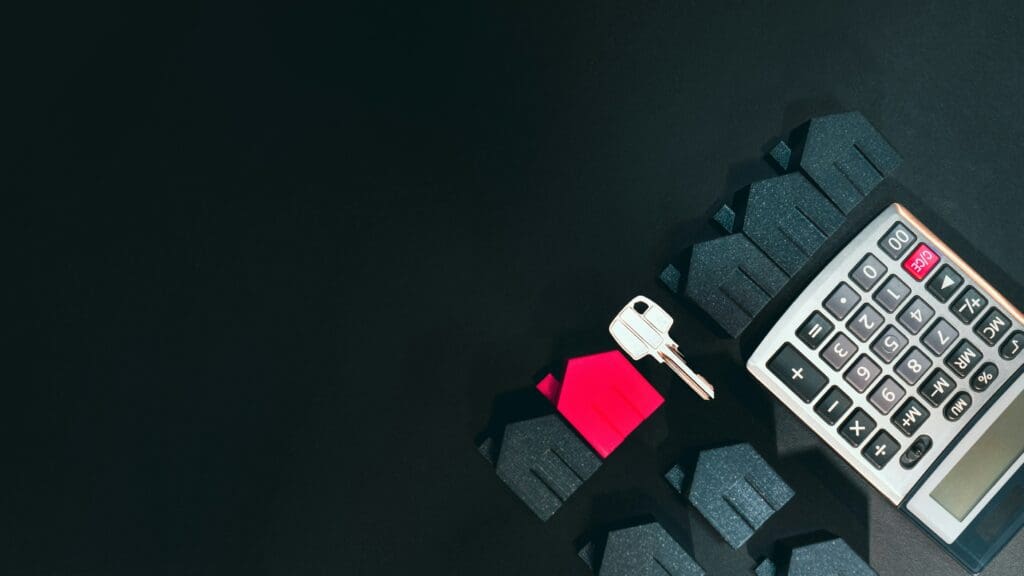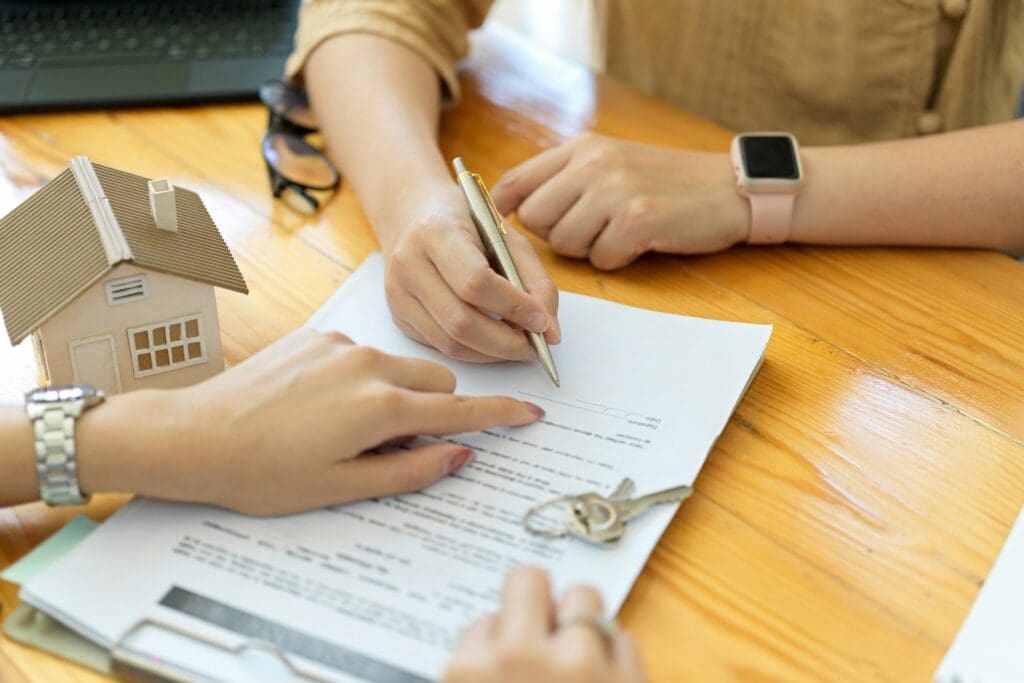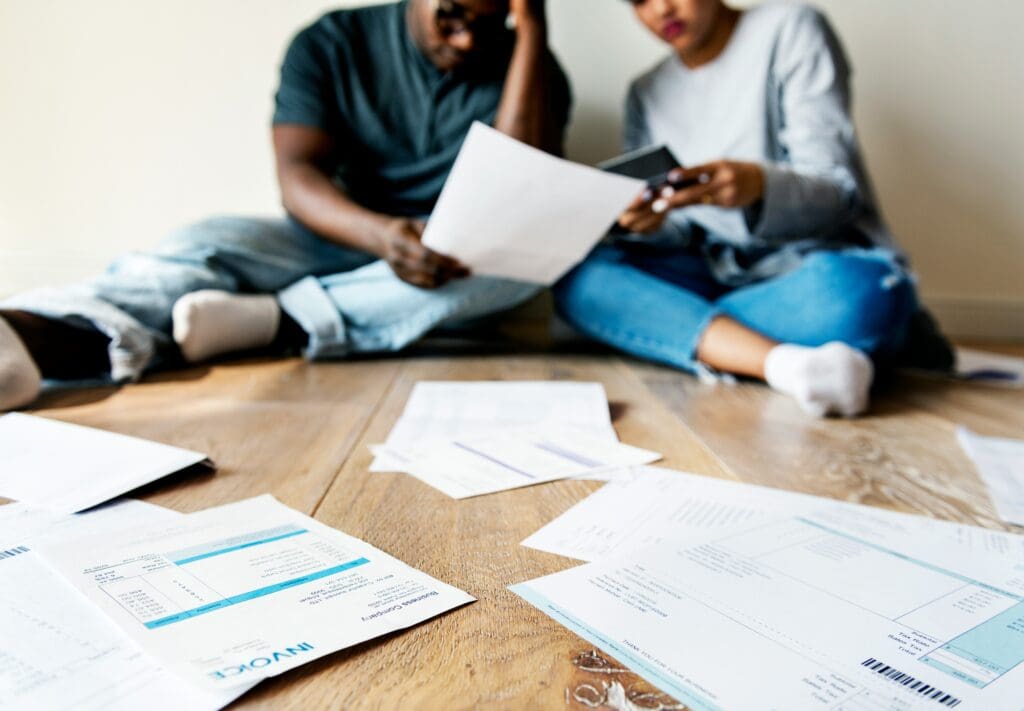Do You Need a Guarantor for a Mortgage?

Estimated reading time 5 minutes
Obtaining a mortgage doesn't always require a guarantor, but if you are struggling financially or have been unable to save a sufficient deposit, a guarantor can be a viable option to consider. Not all homeowners require a guarantor for a mortgage; some will, and in this blog, we’ll explain what a guarantor is and what mortgage options are available for those who need one.
What is a mortgage guarantor?
A mortgage guarantor is someone who agrees to pay your mortgage when you can’t. This is a huge risk for the guarantor, and it’s a role only someone comfortable with putting themselves in this position should offer to fulfil.
It’ll be the guarantor's legal obligation to make the mortgage payments when you can’t, and should both of you fail to pay the mortgage, you’ll both see your credit scores severely impacted.
Why would I have a mortgage guarantor?
You might want a mortgage guarantor if you are a first-time buyer who needs a little help getting a foot on the property ladder, or if you have a poor credit history and find it difficult to get approved for a mortgage.
Who can be a guarantor for a mortgage?
The role of guarantor cannot be fulfilled by just anyone. Some lenders will only accept a guarantor who has already cleared their own mortgage or has cleared at least 50% of it. If your desired guarantor still has a mortgage to pay, they’ll need to prove that they have an income or savings high enough to cover both their mortgage and yours.
Additionally, the guarantor will need to have a good credit score and satisfy the lender's requirements for the mortgage.
In most cases, the guarantor will be a parent or older relative. With potentially more financial security behind them and a bond with the borrower, it gives lenders more confidence that the guarantor is suitable. With some lenders, it’s a requirement that the guarantor is a family member.
What’s a guarantor mortgage?
A guarantor mortgage is a mortgage product where someone else, in addition to you, is responsible for the payments on the property. They’ll only be required to make payments when you can’t, but are legally bound to do so if you are unable to pay. Furthermore, their home can be used as security, meaning that if payments are not made, the lender could force the sale of the guarantor's home. This is the lender's way of protecting their money – if you can’t pay it back, and neither can your guarantor, they need to claim it back somehow.
The person acting as guarantor won’t have their name on any title documents, but will appear on the mortgage documents and other financial paperwork.
In some cases, guarantor mortgages don’t use property as security but instead use savings. With these guarantor mortgages, the guarantor puts funds into a specific savings account where the cash is held as security against the mortgage. If the homeowners default on the mortgage, funds are taken from this account to cover the shortfall. This can be a wise option as interest will accrue on the funds saved, and if it's not touched to help cover mortgage costs, it will work the same as a normal savings account.
Another option is when the guarantor pays funds directly into an account linked to the mortgage, making monthly repayments cheaper. No interest will be paid, and the guarantor will only have access to the funds they contributed once the mortgage is paid off.
What happens if the guarantor doesn’t pay?
It can be uncommon. When a guarantor is added to a mortgage, their financial situation is heavily investigated to ensure that they can afford to make payments if and when required. However, things can change, and a previously good financial situation can become bad quite quickly. If a guarantor is unable to make payments, the lender will investigate and identify why payments are missing. As this breaks a contract, the penalties can be severe and might result in various actions being taken to reclaim the money.
Does having a guarantor help secure a bigger mortgage?
It can do, but not always. If you only have a small deposit, you may be able to secure a 100% mortgage as the guarantor's property or their savings will be used as security against the home. This can vary per lender, so it is worth investigating before committing to a mortgage product.
A mortgage with a guarantor may be needed if a change in circumstances has made a previously affordable mortgage more difficult to obtain. Such a product could help stop repossession, allow for relocation or be put towards upsizing due to an expanding family. To help you get the mortgage when rates are at their best, sell your house fast with Bettermove. We buy your home for cash, in thirty days or less. With no legal fees, no risk of chain breaks and a streamlined process, your sale is guaranteed. This allows you to use the funds to clear your existing mortgage or have a better deposit for your new property, all within a quick timeframe. Contact us today to get started or to ask us any questions.



